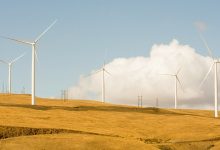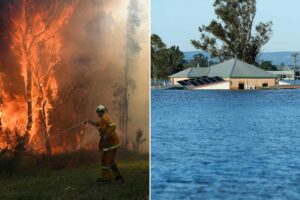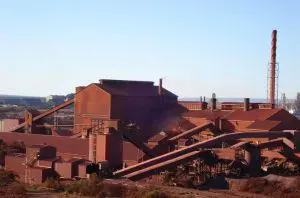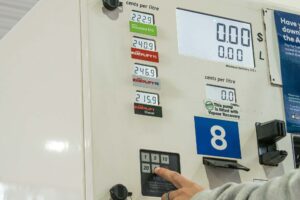The Clean Energy Finance Corporation (CEFC) will partner with Ironstone Capital to establish a new joint venture that aims to ease the entry of institutional investors, such as superannuation funds, into the clean energy market.
Warada Capital will look to identify high potential clean energy projects and support them through the early stages of development, with a view to de-risking them, and then leveraging investment from institutional investors when the risk is reduced.
Warada will be headed by Ironstone’s Alistair Craib who said there has been a surge in demand – including from superannuation and managed wealth funds – for renewable energy investments, led by a growing push from customers for more socially and environmentally conscious investments.
“This is a rapidly growing sector and we have seen a groundswell of demand from institutional investors for investments in clean energy, as well as opportunities to invest in social and community infrastructure.” Craib told RenewEconomy
Warada will focus on new investments in greenfield projects, drawing upon its experience with early-stage projects to help get renewable energy and energy efficiency projects off the ground. Warada will seek to fill the finance gap that many projects encounter in the early stages of development, specifically targeting the market for early stage risk capital.
Where opportunities can be identified to improve an established asset’s performance and enhance investment returns, Warada will seek to facilitate strategic investments by its clients in established “brownfield” projects, working to realise those performance gains.
The CEFC will make up to $100 million available for co-investment in projects identified by Warada, and will acquire a 50 per cent equity stake in Warada. The CEFC hopes to use potential investments identified by Warada in the hope it will also help attract interest from institutional investors.
Warada’s new CEO Craib has formerly served as the CEO of the Collagar Wind Farm, leading the development of the $800 million project in Western Australia which was recently fully acquired by the retailer superannuation fund REST, and will seek opportunities for the fund to invest in transitioning established sectors, including resources and transport, to using clean energy.
“We see investment potential across early-stage solar and wind projects, energy storage, electricity network enhancements and the use of distributed energy technologies across the built environment.” Warada CEO Alistair Craib said.
“We’re also targeting clean energy related investments in the natural resources, transport and agriculture sectors which involve sustainability, energy efficiency, renewable energy and low carbon opportunities.”

CEFC CEO Ian Learmonth sees the joint venture as an opportunity to build Australian-based expertise in using finance to support the early-stage design and development of clean energy projects, increasing the likelihood of further institutional investment in the future.
“By investing development equity through Warada, we can become more closely involved in project conceptualisation, design and implementation, while ensuring a pathway for potential further investment in projects at financial close.” Learmonth said.
“This also provides us with the opportunity to further develop the Australian domestic capabilities in the local renewable energy sector, which is currently dominated by offshore participants. This is pivotal to our policy objective of supporting the orderly transition of the Australian economy to a decarbonised future.”
“We’re also targeting clean energy related investments in the natural resources, transport and agriculture sectors which involve sustainability, energy efficiency, renewable energy and low carbon opportunities.”
Ironstone has worked with the CEFC regularly over the last few years as an advisor for projects receiving CEFC investment, including Total Eren’s 256MW Kiamal solar farm, which secured a $51 million investment from the CEFC.
“Ironstone is excited to be developing this initiative with the CEFC. We have developed a market position as one of Australia’s leading financial advisors in the renewable energy sector and this initiative further highlights our commitment to the sector,” Ironstone director Aaron Simcock said.
The CEFC has now established partnerships with 11 investment managers, deploying a total of $1.2 billion in funds for co-investment in renewable energy and energy efficiency projects. Similar joint ventures have been created to target investments in the property sector, and small and large scale energy developments, along with the establishment of a $200 million energy efficiency fund for the agriculture sector in collaboration with the CSIRO.
The CEFC also worked with NAB to establish a $200 million investment fund, with the aim of facilitating institutional investment in renewable energy projects, providing exposure to a diversified portfolio of seven large wind and solar farms.
The government owned CEFC has notched up some significant milestones in recent months, passing $1 billion in total investments in Australian solar projects, and surpassing more than 2GW of wind investments after making a $180 million investment in the 227MW Collector Wind Farm.
The CEFC has continued to achieve strong investment returns for the federal government, and has deployed more than half of the $10 billion in funds that it has been allocated, despite attempts from the Coalition Government to abolish the CEFC.









